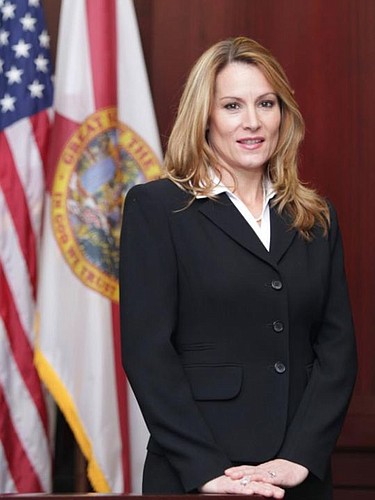
If you need to deal with a family law issue — and you really can’t afford to pay for an attorney, but you make too much money to qualify for free legal aid services — Clay County is a good place to live.
In addition to the Florida Legal Access Gateway, an online pilot program that can guide someone toward legal enlightenment, and even provide access to some common family law documents that are approved for filing by the state Supreme Court, you can consult with an attorney for as little as $30.
It’s called “low bono” and it’s been found to fit the needs of people who come to the county clerk’s office in Green Cove Springs looking for help.
Not only are they not represented by an attorney, but they also aren’t familiar with the basics of the legal system, said Clay County Clerk of the Circuit Court Tara Green.
“People have questions and clerks can’t give legal advice. Many people don’t understand the duties of clerks and lawyers. They see it as all one system,” she said. “We wanted to bridge that gap.”
Green and her staff decided to contact attorneys who practice in Clay County and specialize in family law and ask if they’d be willing to help. A small group – currently eight lawyers – agreed to provide their services to clients on a limited basis and for a nominal fee.
They put in place a plan to charge $30 for a 30-minute consultation to answer questions about proper procedure and in some cases, help people fill out the forms that must be filed with the clerk to initiate an action.
The attorneys see clients only on Mondays. Green’s staff sets the appointments and the clerk’s office provides meeting space for the consultations.
As of Tuesday, the low bono attorneys were fully booked through June 30.
That doesn’t surprise Jim Kowalski, president and CEO of Jacksonville Area Legal Aid, which provides free civil legal services for low-income clients in 17 North Florida counties.
JALA partnered with the Florida Commission on Access to Civil Justice, the Florida Justice Technology Center, The Florida Bar, The Florida Bar Foundation and Green’s office to develop the online gateway that launched in October.
Being able to talk to an attorney and ask questions that will guide a litigant to the right path is the key to making the online system better serve the needs of more people who represent themselves on the way to court, Kowalksi said.
According to 2017 federal guidelines, for a single person to qualify for pro bono legal aid, they must have an annual income of $24,120 or less — 200 percent of the federal poverty level. For a family of four, the 200 percent threshold is $49,200.
The gap in services is from 200 percent to 400 percent of the federal guideline, Kowalksi said. It’s people who don’t qualify for free legal aid, but don’t have the discretionary income over and above their family’s living expenses to afford to write a check to a private attorney for a substantial retainer in order to get even limited legal advice.
That’s the potential value of low bono.
“A certain percentage of people can pick up the phone and hire a lawyer. For the folks who can’t do that, this is for them,” said Kowalski.
Online self-help legal services
In Florida: floridalawhelp.org
• 142,240 users in 2016
• 750,192 pages viewed
In Clay County: Florida Legal Access Gateway at clayclerk.com
• 1,172 users since launch in October
• 2,044 sessions
• 4,877 pages viewed
Sources: Florida Justice Technology Center, Jacksonville Area Legal Aid
(904) 356-2466